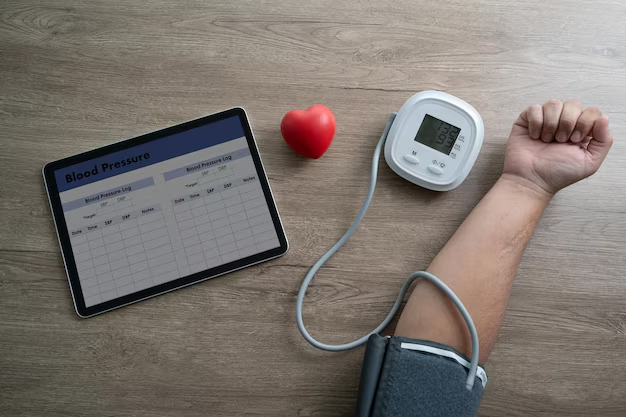Your Guide to Why Is Hypertension Called The Silent Killer
What You Get:
Free Guide
Free, helpful information about HyperTension FAQ and related Why Is Hypertension Called The Silent Killer topics.
Helpful Information
Get clear and easy-to-understand details about Why Is Hypertension Called The Silent Killer topics and resources.
Personalized Offers
Answer a few optional questions to receive offers or information related to HyperTension FAQ. The survey is optional and not required to access your free guide.
Discover Why Hypertension Is Known as the Silent Killer
Hypertension, more commonly known as high blood pressure, earns its ominous nickname, the "silent killer," for its ability to inflict harm on the human body without any obvious warning signs. Unlike illnesses that manifest with immediate symptoms, hypertension quietly damages vital organs such as the heart, kidneys, and brain over time, often without the individual even realizing they are in danger.
Understanding Hypertension's Stealthy Nature
High blood pressure is a serious condition that affects millions globally. It's particularly insidious because it can persist without noticeable symptoms until significant damage has already occurred. This lack of symptoms is precisely why regular health screenings are crucial, especially for adults over the age of 40. Without monitoring, blood pressure can quietly wreak havoc, leading to severe health complications like heart attack, stroke, kidney failure, and even vision loss.
The Risks of Ignorance
While the silence of hypertension might suggest benignity, the reality is starkly different. The consequences of unchecked high blood pressure are severe:
- Cardiovascular Disease: Continuous force on arterial walls can result in atherosclerosis, where arteries harden and narrow, leading to reduced blood flow. This increases the risk of heart attacks and strokes significantly.
- Kidney Damage: High blood pressure can damage the blood vessels in the kidneys, impairing their ability to filter waste from the blood effectively.
- Vision Loss: Over time, hypertension can cause blood vessels in the eyes to burst or bleed, resulting in vision problems and potential blindness.
Prevention and Management
The good news is that with vigilant lifestyle changes and medical oversight, hypertension can be prevented or managed effectively. Monitoring blood pressure regularly is essential for early detection. Lifestyle adjustments such as a balanced diet, regular exercise, limiting alcohol intake, and quitting smoking can all contribute to lowering blood pressure. In some cases, medication prescribed by a healthcare professional is necessary.
Financial Assistance for Health Management
For many, managing hypertension might seem daunting, particularly when financial constraints come into play. Fortunately, there are numerous resources available designed to help manage healthcare costs, making it easier to prioritize your health.
💰 Government Health Insurance Programs: Programs like Medicaid and Medicare offer expansive health coverage for those who qualify, easing the cost of doctor visits, medication, and preventive care.
🏥 Community Health Clinics: These clinics often provide free or reduced-cost healthcare services and support to those who may not have insurance or the ability to pay for standard healthcare services.
📚 Educational Grants and Programs: Some non-profit organizations offer educational resources and programs aimed at helping individuals learn how to manage hypertension effectively, including free classes on nutrition and fitness.
💳 Credit Card Solutions for Medical Expenses: Some credit cards are designed specifically to support medical expenses, offering lower interest rates and flexible payment options to those with significant medical debt.
In a world where financial stressors can exacerbate health challenges, understanding and utilizing these resources is key. Addressing hypertension effectively not only improves health outcomes but also can alleviate financial strain in the long term. Being proactive about your health is the first line of defense against this silent threat, and utilizing available financial aid programs can help pave the way to a healthier, stress-free life.
What You Get:
Free HyperTension FAQ Guide
Free, helpful information about Why Is Hypertension Called The Silent Killer and related resources.

Helpful Information
Get clear, easy-to-understand details about Why Is Hypertension Called The Silent Killer topics.

Optional Personalized Offers
Answer a few optional questions to see offers or information related to HyperTension FAQ. Participation is not required to get your free guide.


Discover More
- a 66 Year Old Female With a History Of Hypertension
- Are Eggs Bad For Hypertension
- Are Eggs Good For Hypertension
- Are Endocrine Disorders Causing Hypertension Rare
- Can Adderall Cause Hypertension
- Can Alcohol Cause Hypertension
- Can Allergies Cause Hypertension
- Can Anemci People Get Hypertension
- Can Anemia Cause Hypertension
- Can Antibiotics Cause Hypertension
